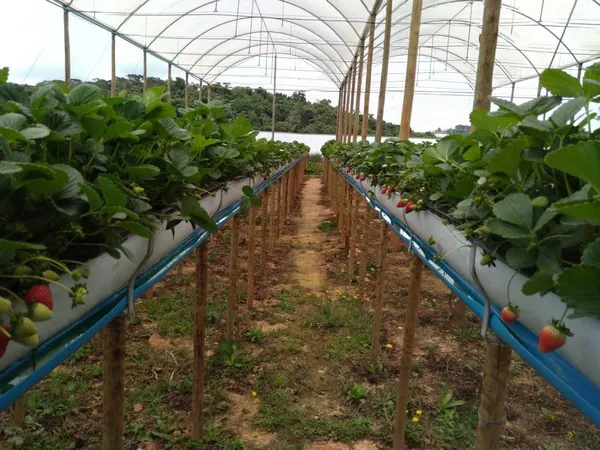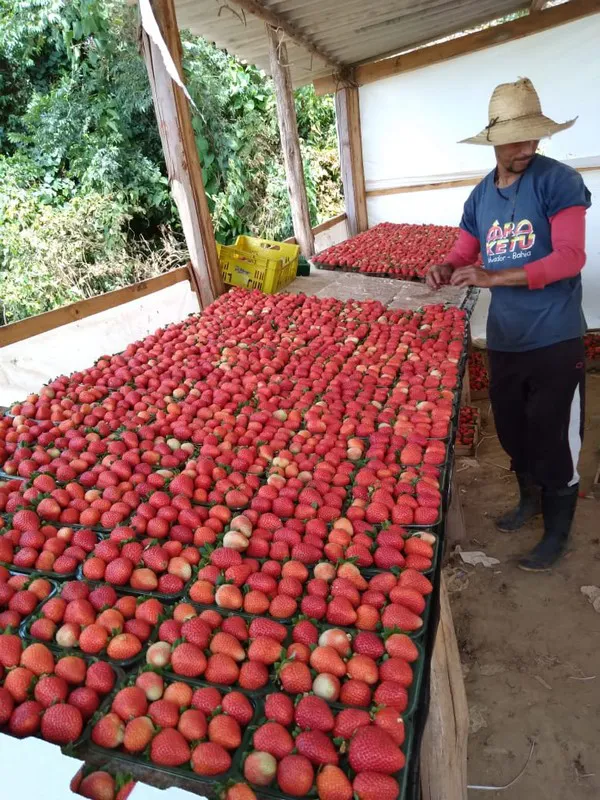It's hard to imagine that 60% of the strawberries cultivated in Brazil come from seedlings that had to be imported from countries such as Spain, Argentina, and Chile. Imports raise production costs and generate a series of problems for farmers. The quality of the seedlings is often compromised due to the long transport distance and the varieties imported are not adequate for Brazil's climatic conditions.
To face this problem, the Ministry of Agriculture of Minas Gerais (Seapa), through the Agricultural Research Corporation of Minas Gerais (Epamig), joined the Rede Morangos do Brasil project that seeks to develop a multi-regional research and extension plan to carry out actions to strengthen the strawberry chain in Brazil.

The entity, which is linked to Seapa, will work together with 11 other research institutions in the states of São Paulo, Parana, Espirito Santo, and Santa Catarina to carry out research on genetic improvement; seedling production technology; vegetable nutrition for the different productive systems; crop pests and diseases; and post-harvest and chain management (production and marketing).
“Epamig presented a project for the future installation of several experiments to develop new varieties adapted to the edaphoclimatic conditions of Minas Gerais and to, later on, install Demonstration Units with Emater-MG in the state's main strawberry producing regions. This would allow them to offer quality seedlings to producers and, thus, reduce dependence on imports,” stated Epamig's Director of Technical Operations, Trazilbo de Paula.
Mario Sergio Carvalho Dias, Epamig researcher and coordinator of the 'National strawberry hybrids: biotechnology for seedling production and productive performance in Minas Gerais' project, said that the Epamig Norte biotechnology laboratory will carry out the multiplication in vitro of national strawberry hybrids selected in breeding programs by Epamig, the State University of Londrina, and the Agronomic Institute of Campinas.

Strawberry data in Minas
“Minas has 2,810 hectares planted with strawberries and a production of 139,118 tons. The state has 50 municipalities with production reports, 7,880 family producers involved in the cultivation, and 238 non-family producers,” stated Deny Sanabio, the state technical coordinator of Fruticulture in Emater-MG.
Producers pay around R $ 1.30 for each imported seedling, which accounts for approximately 80% of the total production cost, he said. “The producers of Minas Gerais annually import approximately R $ 72 million in seedlings. If we allocate 10% of this investment to research, we will solve this problem in a short time.”
For more information:
